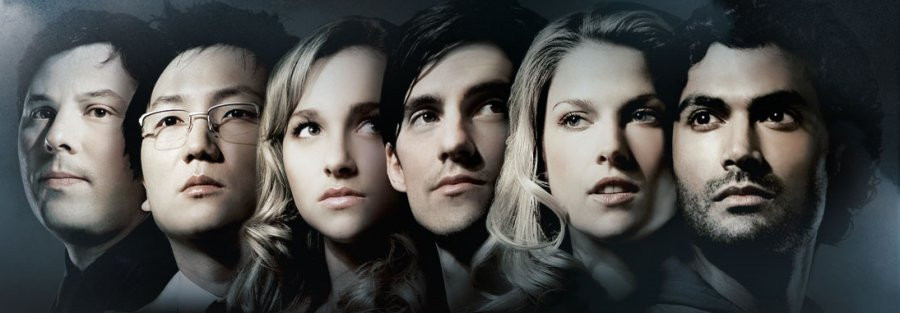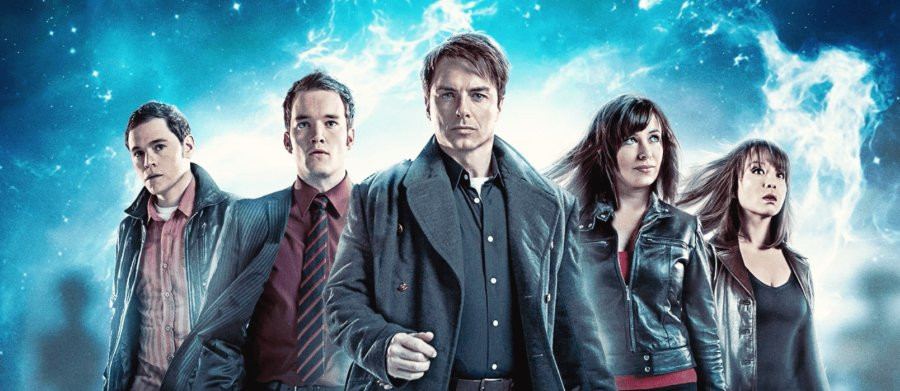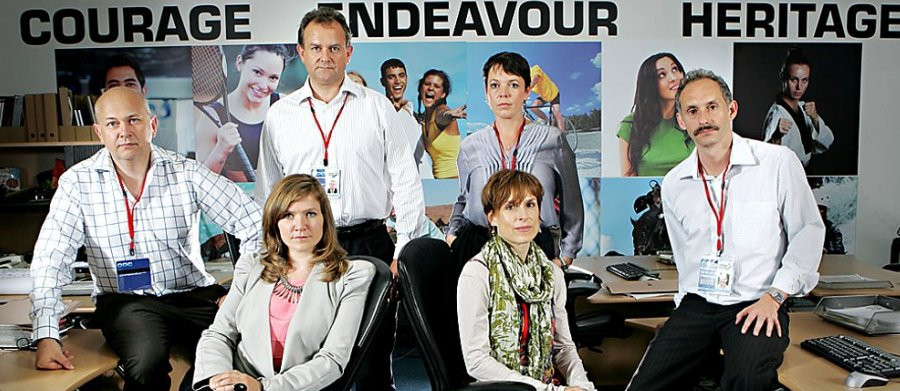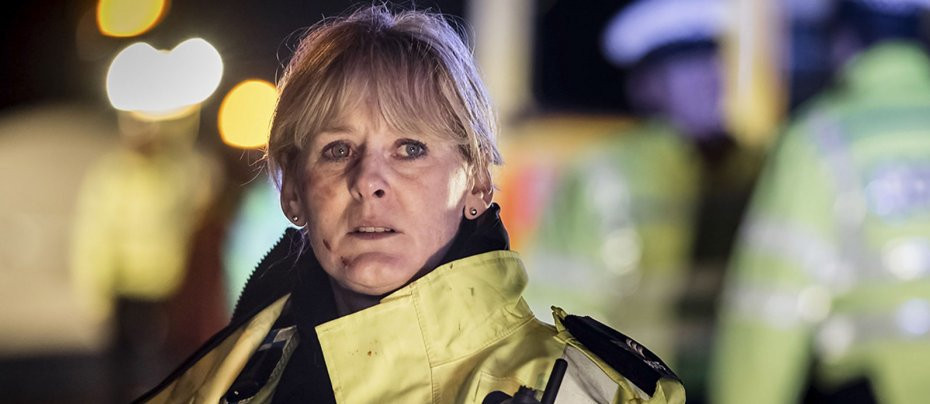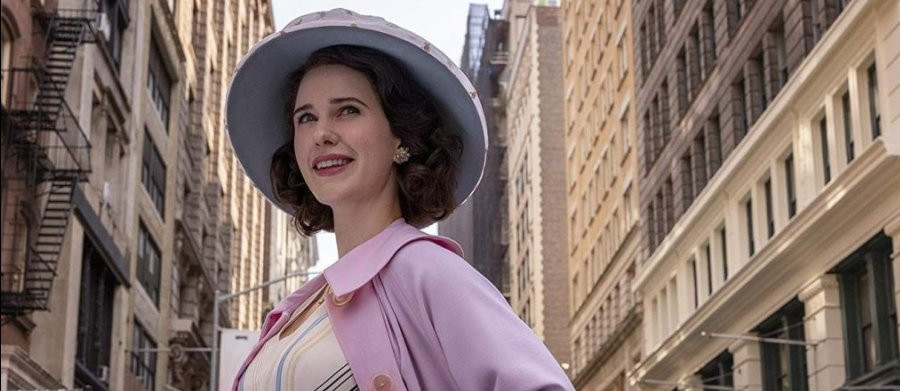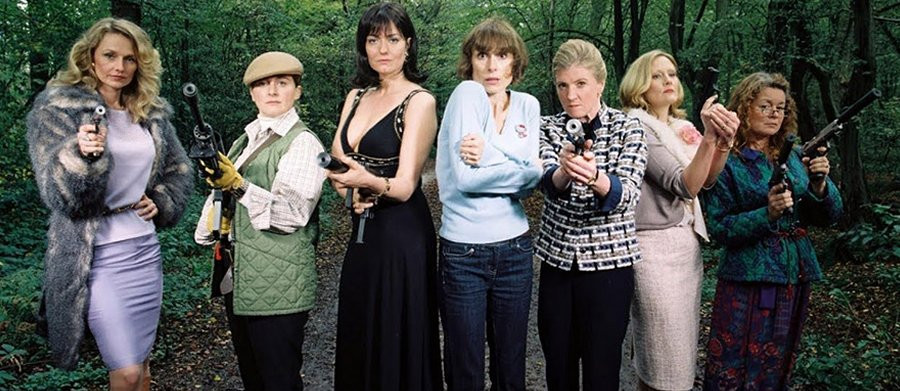
Suburban Shootout
2006 - United KingdomReview: John Winterson Richards
Although Suburban Shootout was something of a guilty pleasure for this particular reviewer, if one is being honest - which one really ought to be when writing a review - it was a one-joke show and that one joke was rather flogged to death over the course of two seasons.
Looking at it another way, however, it is a good example of how much you can get out of a single joke when it is well told, and how a really, really good cast can carry it for much longer than anyone has a right to expect.
The joke is taking the basic proposition of Desperate Housewives, that beneath the calm and tidy surface of a middle-class community there are deep underlying tensions, and adding the violence and organised crime of a Mafia film. Making it a British community, where everyone is supposed to be well mannered, just adds to the absurdity.
The feature film 'Hot Fuzz,' which came out the following year, had a similar premise, but in many ways 'Suburban Shootout' does it better. Despite its title, it is not particularly violent, so it maintains its comic tone more easily. The emphasis is more on the satire of suburban life.
Police Inspector Jeremy Hazeldine relocates to the idyllic looking Little Stempington - a name that immediately evokes Stepford - with his wife and son. There he is rather disconcerted by how little he has to do. It seems there is no crime at all there. It turns out that there is a reason for this...
It is not Jeremy but his wife, Joyce, who soon discovers it. The respectable ladies of Little Stempington have formed a neighbourhood watch with a difference: they are armed vigilantes.
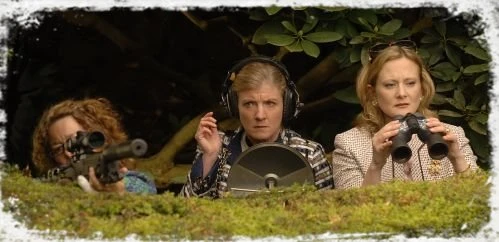
As such they have been very effective at stamping out petty crime and "anti-social behaviour." There are no teenagers sniffing glue or wearing "hoodies" spoiling the look of the charming hedge-lined avenues of Little Stempington - which is actually Pinner in Middlesex, the absolute epitome of British middle class suburbia.
So far, this sounds rather attractive. Alas, power corrupts, and the whole point of law is that one is not allowed to choose which bits one feels like obeying. Having tasted the heady freedom of law breaking in an ostensibly good cause, some of the vigilantes got to enjoy it too much and expanded into the sort of criminal activities they were supposed to be against.
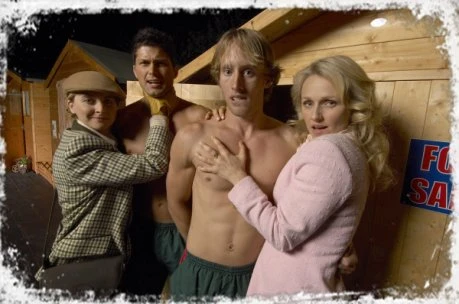
However, there is a nice twist to these activities: they are the sort of thing that might, at least in the minds of male scriptwriters, appeal more to middle aged, middle class women. So when they run drugs, it is not cocaine but HRT patches, and their illegal fighting is over supermarket parking spaces.
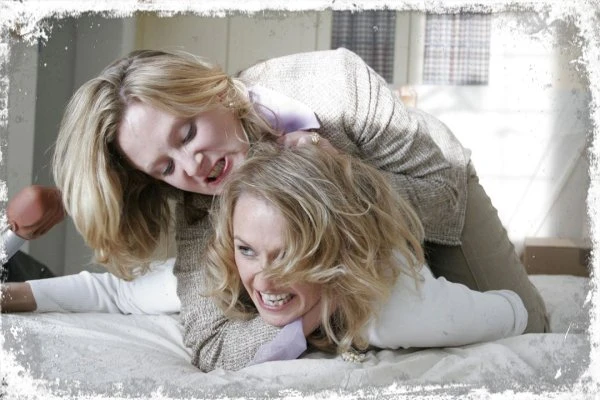
The vigilantes have therefore split into two viciously warring factions. One, led by Barbara du Prez (Felicity Montagu), stays true to its original calling and seeks to defend the Little Stempington way of life. The other becomes a fully-fledged crime syndicate, led by Camilla Diamond (Anna Chancellor - who played the girl the Hugh Grant character really ought to have married in 'Four Weddings and a Funeral').
The gangs are basically mirrors of each other. Barbara has a nymphomaniac and a weapons specialist as her two lieutenants, and so does Camilla.
Joyce finds herself in the middle of this battleground. Courted by both sides, sometimes threatened, she is forced to co-operate with both at different times, even if her sympathies are ultimately more with Barbara's gang.
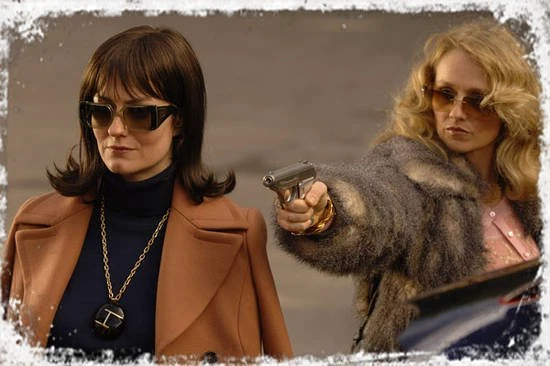
This works because Joyce is played by the excellent Amelia Bullmore, who really holds the whole thing together quite brilliantly. No one does harassed quite as well as Amelia, but she can also be assertive. The first season sees the character grow from helpless confusion to reluctant player in the game, and the second finds her in a leadership role. It is a first class performance, which deserved more attention, from a first class actress, who also deserves more attention.
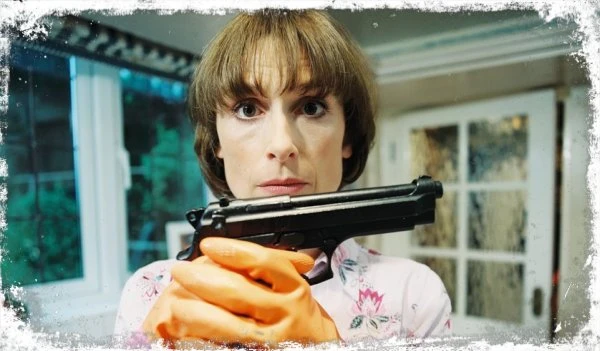
The other female principals are an enjoyable bunch, with Chancellor, predictably, making the most of her delicious villainess role. If none of the characterisations are deep, they are not meant to be, nor need they be. That said, while this is definitely a show about women and driven by women, one cannot help wondering if having at least one actual woman among the writers might have given a better female perspective and a little more depth.
The emphasis on women means that the men are a feeble bunch by comparison. They are shown as completely unaware of their wives' activities, even if there are moments when Jeremy suspects something is going on. This is a carefully balanced performance by Ralph Ineson, an actor who is probably very familiar from his prolific "voice over" work in advertisements but who also deserves to be better known for his work on screen, where he is best known, like so many British actors at the moment, for his work on Game of Thrones.
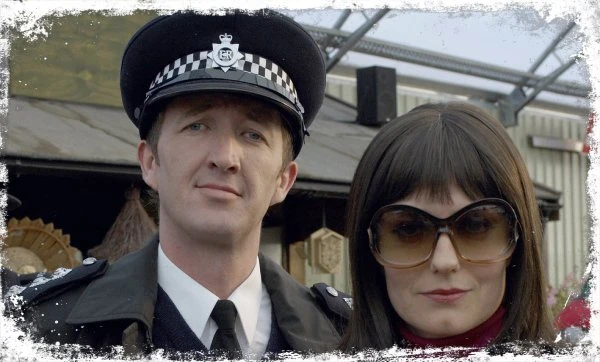
Tom Ellis plays his sidekick, apparently his only subordinate in Little Stempington, a young man as tedious as their routine patrol work in a place with - apparently - no crime.
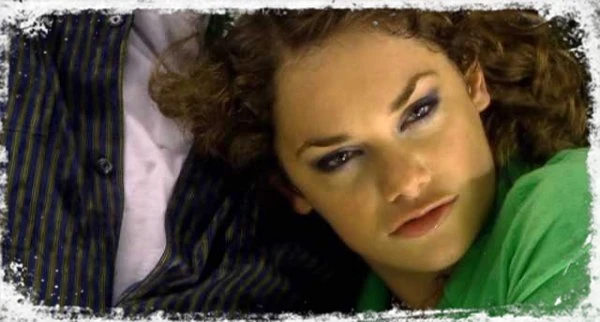
A rather one sided "Romeo and Juliet" situation develops between the young offspring of two rival houses. Camilla's daughter, Jewel, played by a young Ruth Wilson, is a nymphomaniac - there seem to be a lot of them in Little Stempington - who develops an unrequited passion for Jeremy and Joyce's missionary son, Bill, played by a young Tom Hiddleston. Bill is not interested, and slightly frightened of Jewel. This makes Jewel all the more determined, and since she fancies herself as an actress - with little justification - she becomes very dramatic about the whole affair. This frightens Bill even more.
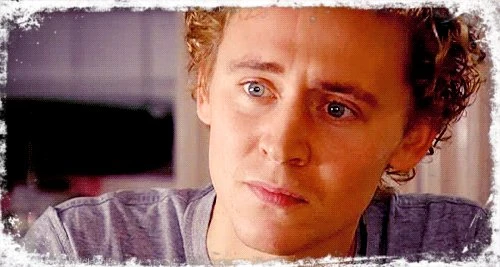
Both future stars give good evidence of their precocious talent, with Wilson in particular confirming that it takes a good actress to play a bad one. Most people who look at 'Suburban Shootout' these days probably do so to see one or both of them in early roles.
Yet there is more to it than that. If it fell short of being a great show, 'Suburban Shootout' merited a higher profile: it was clever, it was entertaining, it was witty, and, above all, it was a good showcase for a very strong cast in general.
Seen this show? How do you rate it?
Seen this show? How do you rate it?
Published on June 23rd, 2020. Written by John Winterson Richards for Television Heaven.


